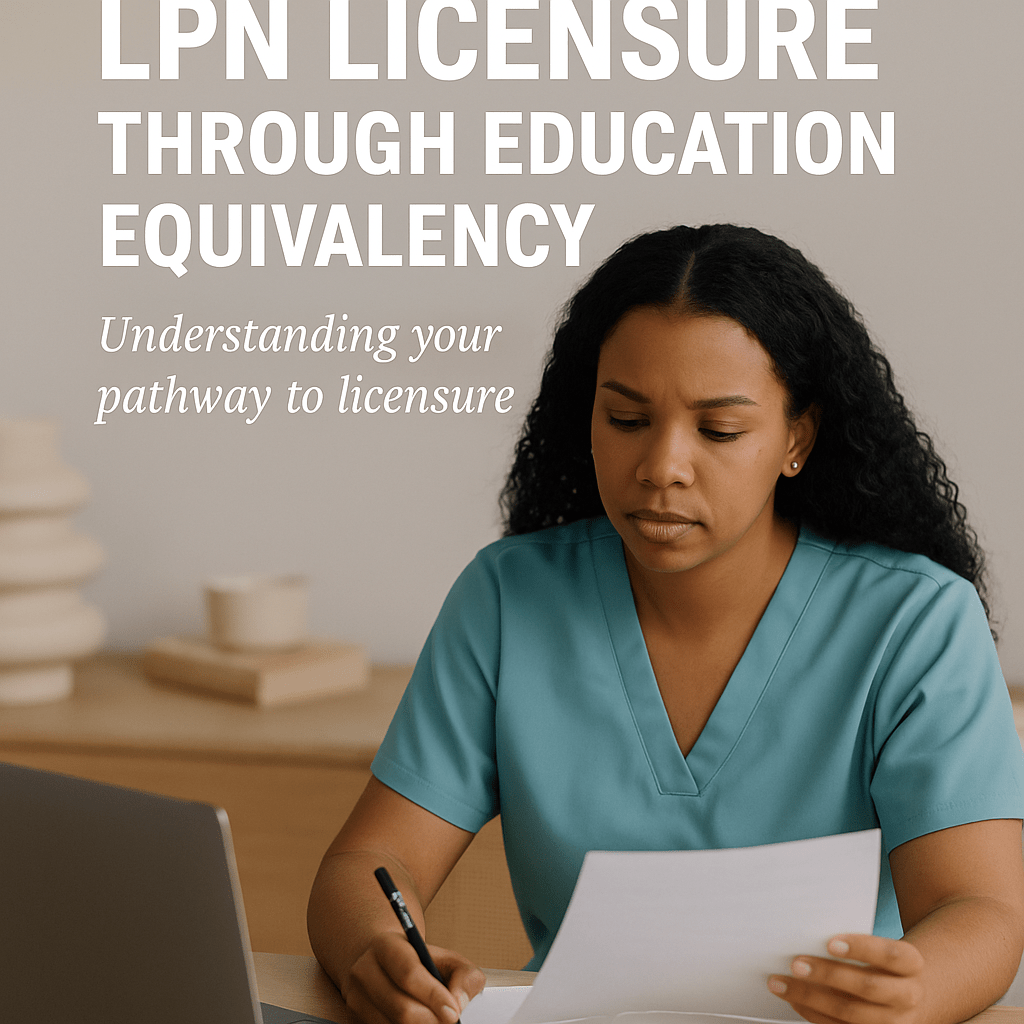Can You Test Out for an LPN License? Here's What You Need to Know

Understanding education equivalency pathways and state-specific requirements.
📚Exploring Alternative Pathways to LPN Licensure
If you're a nursing student who didn't complete your RN program or have substantial nursing education, you might wonder:
“Can I become an LPN without completing a traditional LPN program?”
The answer varies by state. Some states offer an education equivalency pathway, allowing individuals with certain nursing education backgrounds to qualify for LPN licensure. Let's delve into what this means and how it applies, especially in South Carolina.
1. What Is Education Equivalency for LPN Licensure?
Education equivalency refers to the recognition of nursing education that is substantially equivalent to an approved LPN program. This pathway is typically for individuals who have completed portions of an RN program but did not graduate.
💡 Real Tip:
This route is not for those without formal nursing education. It's designed for individuals who have completed specific nursing coursework and clinical experiences.
2. South Carolina's Education Equivalency Pathway
In South Carolina, the Board of Nursing allows candidates to apply for LPN licensure by examination through an education equivalency route. To qualify:
-
Educational Requirements: Completion of at least 41 semester hours in a nursing program, including:
-
8 semester hours of anatomy and physiology
-
3 semester hours of nursing fundamentals
-
6 semester hours of medical-surgical nursing
-
5 semester hours of nursing across the lifespan
-
-
Clinical Experience: Documented clinical experiences in medical-surgical nursing and nursing across the lifespan.
-
Academic Performance: A minimum grade of 'C' in all required courses and an overall GPA of at least 2.0.
-
Certification: The program director must certify that the education is substantially equivalent to an approved LPN program.
3. States Offering Similar Pathways
While South Carolina provides a clear education equivalency route, other states have varying regulations:
-
California: Offers an equivalency method for military corpsmen and others with specific healthcare training.
-
Florida: Allows applicants who have completed equivalent coursework in an RN program to apply for LPN licensure.
It's crucial to consult the specific state's Board of Nursing for detailed requirements.
4. Preparing for the NCLEX-PN
Even with education equivalency, candidates must pass the NCLEX-PN to obtain licensure. Preparation is key:
-
Study Resources: Utilize NCLEX-PN prep books and online courses.
-
Practice Exams: Take practice tests to familiarize yourself with the exam format.
-
Study Schedule: Create a consistent study plan leading up to the exam date.
5. Is This Path Right for You?
Consider the education equivalency route if:
-
You've completed significant portions of an RN program but did not graduate.
-
Your previous nursing education aligns with the state's equivalency requirements.
-
You're prepared to undertake the necessary steps to validate your education and pass the NCLEX-PN.
💬 Final Thoughts: Navigating the Path to LPN Licensure
Education equivalency offers a valuable alternative for those with prior nursing education seeking LPN licensure. By understanding your state's requirements and adequately preparing for the NCLEX-PN, you can take a strategic step forward in your nursing career.
Need guidance on preparing for the NCLEX-PN through the education equivalency pathway? Explore our LPN Equivalency Toolkit and the Fast Track Series for comprehensive resources and support.

0 comments